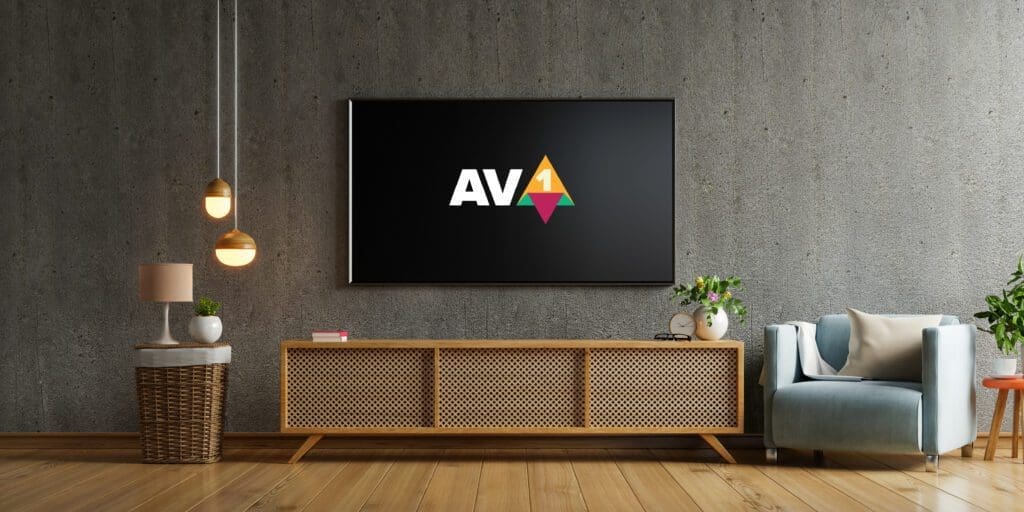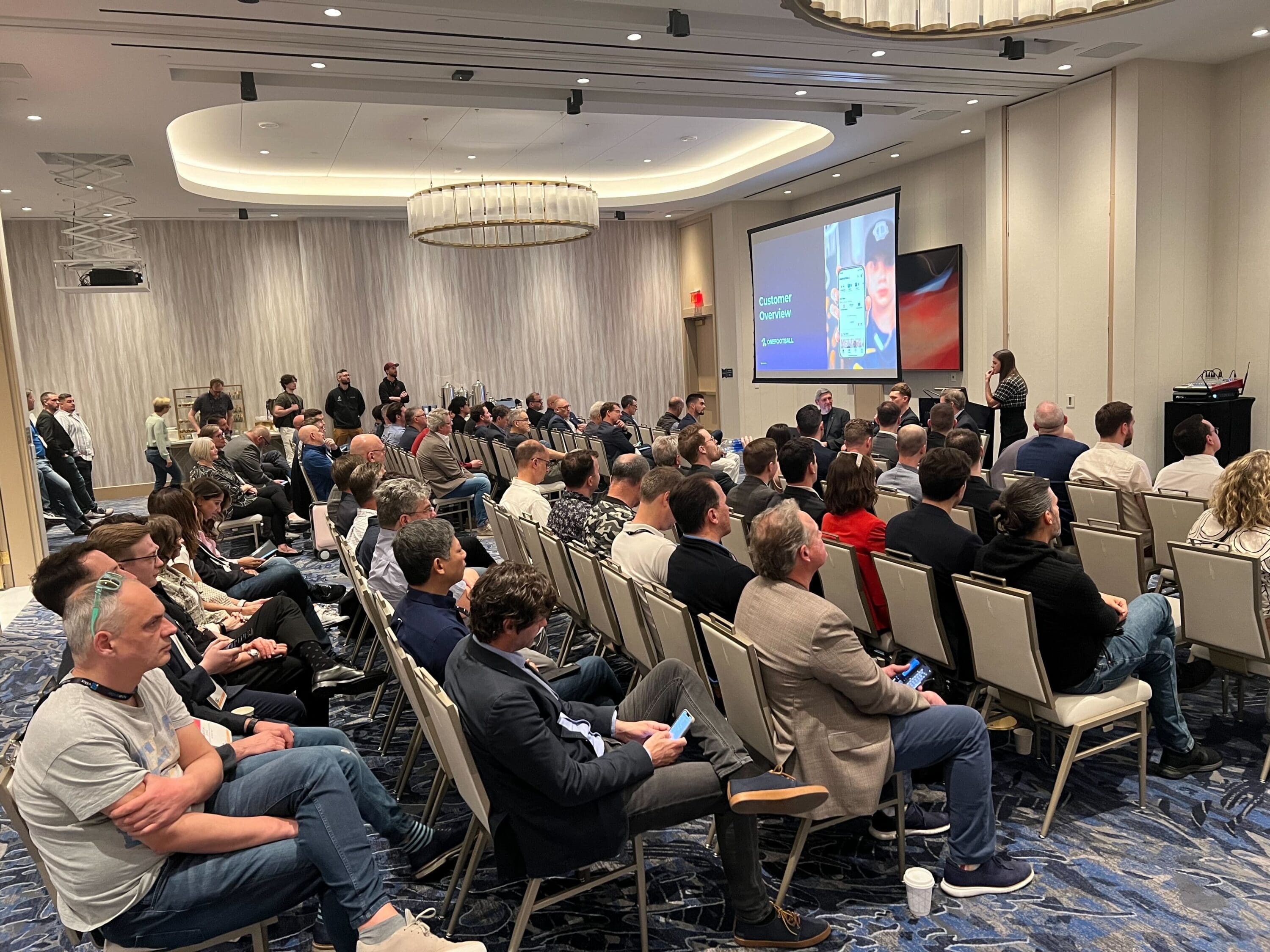This post was originally published in Sept 2023. It has been updated several time with the latest news and developments, most recently on June 13, 2024 with information about Apple’s AV1 Dolby Vision support.
Apple made waves across the video encoding and streaming communities when they announced the iPhone 15 Pro and 15 Pro Max would have a dedicated AV1 hardware decoder, making them the first Apple devices with official AV1 codec support. We’ve compiled all the details from their announcement, the HLS interest group, and product release notes to bring you everything you need to know about Apple AV1 codec support. If you’re looking for more information about AV1 playback on Android, Smart TVs and set-top boxes, you can find more information at https://bitmovin.com/av1-playback-support/. Otherwise, keep reading to learn more!
- Hints that Apple AV1 support was coming
- iPhone 15 Pro announcement
- More details about HDR, DRM, HLS and Safari support for AV1
- Apple M3 processor announcement
- Apple M4 processor iPad announcement
- AV1 Software Decoding Support?
- Ready to take advantage of AV1 Encoding?
- Related links
Hints that Apple AV1 support was coming
Prior to the iPhone 15 announcement in September 2023, there were several indications that Apple would eventually support AV1. Back in 2018, Apple joined the Alliance for Open Media, the organization responsible for creating and promoting AV1 encoding and many took it as a sign that Apple would eventually support AV1. More recently, updates to Apple’s AVFoundation core media framework showed the addition of a new global variable “kCMVideoCodecType_AV1“, and earlier in 2023, the Safari 16.4 Beta release notes actually showed AV1 support was coming, but it was removed without comment shortly after and never added to Safari 16. AV1 WebCodecs support did eventually become available as an experimental option in the Safari Technology Preview, but enabling it didn’t seem to have any effect.
Still with all of these hints being dropped, the announcements of Apple’s M series of processors and the most recent update to the HLS draft specification in May 2023 all came and went with no mention of AV1. Everyone who was paying close attention and anticipating Apple AV1 support was left disappointed, especially knowing how much weight their decision carried for the rest of the streaming ecosystem. Overall AV1 adoption has been slower than many had hoped and expected, and Apple’s lack of support was often cited as a reason to wait and avoid updating video encoding stacks.
iPhone 15 Pro announcement
This all changed on September 12, 2023, when Apple announced their new A17 Pro mobile processor would include support for AV1 hardware decoding. You can watch the full replay here, with the section about the 15 Pro’s new processor beginning at 1:01:20. VP of the Apple Silicon Engineering Group, Sribalan Santhanam presented the new A-series processor and shared details about the industry’s first 3 nm chip, including a 6-core CPU and a new Pro-class, 6-core GPU. It also has a 16-core neural engine that can process up to 35 trillion operations per second and run machine learning models on the device, without sending personal data to the cloud. It also includes a dedicated engine for Apple’s own ProRes codec in addition to the big one for video streaming services, the AV1 hardware decoder.
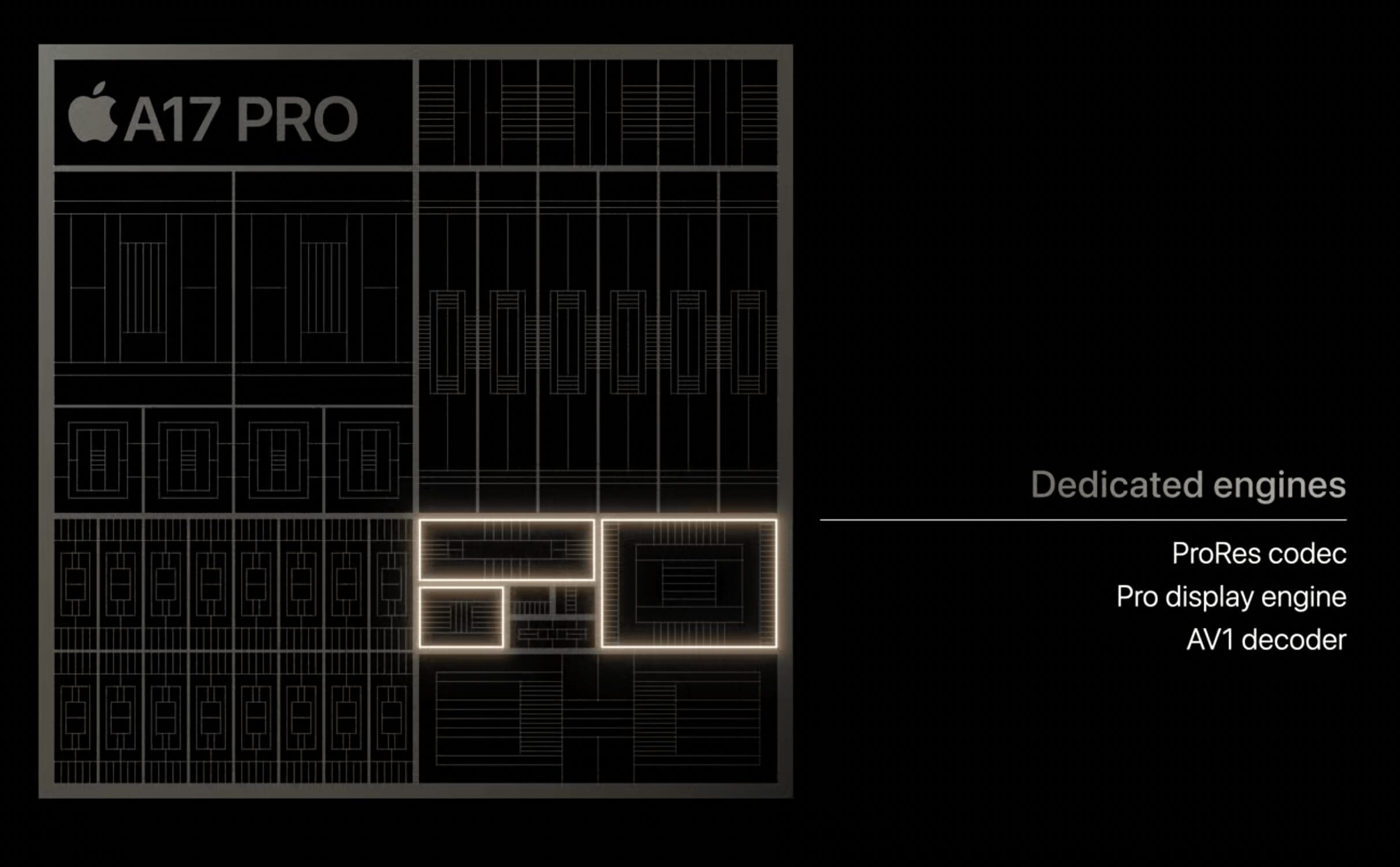
“We also included a dedicated AV1 decoder, enabling more efficient and high-quality video experiences for streaming services.”
Sribalan Santhanam – VP, Apple Silicon Engineering Group
More details about HDR, DRM, HLS and Safari support for AV1
After the presentation, co-author of the HLS specification Roger Pantos shared more details via the hls-interest mailing list. He confirmed that indeed, that both the iPhone 15 Pro and 15 Pro Max would be the first Apple devices with hardware decoding support for AV1 video content. The dedicated hardware meant that in addition to Standard Dynamic Range (SDR) content, it would also support High Dynamic Range (HDR10) as well as content that was protected by FairPlay Streaming DRM, things that software decoders typically cannot handle well or securely. Playback would be supported in Apple’s native AVPlayer or AVSampleBufferDisplayLayer, including using Media Source Extensions (MSE), or Managed Media Source (MMS) as Apple calls their new version, under an experimental setting on iOS Safari.
HLS playback of AV1 will work without any new signaling requirements, just the regular CODEC and VIDEO-RANGE attributes. The SCORE attribute can also be used to force the playback client to prefer AV1 over other encodings, but renditions encoded with AVC and/or HEVC should still be included for older devices and AirPlay support. The WebKit blog provided more information about Safari 17.0, confirming support for the AV1 video codec was added on devices with hardware decoding support. They also shared this html code snippet for presenting single-file progressive video that has been encoded with AV1, HEVC and VP9, which allows the browser to choose the best option for playback. It should be noted that outside of very short clips, adaptive streaming with HLS is preferred over progressive streaming in order to provide the best quality of experience and bandwidth efficiency.
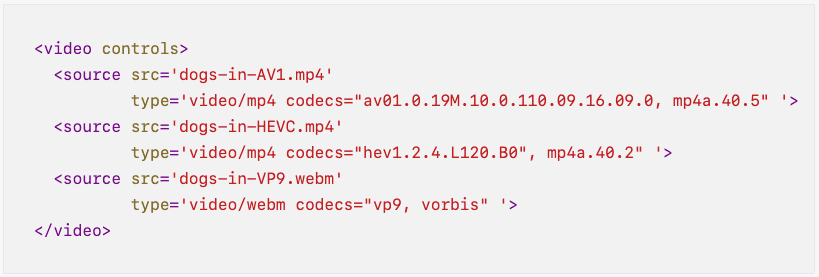
The ‘type’ attribute signals the type of container being used and ‘codecs’ parameter string lets the browser know which codec was used and other characteristics like profile, level, color space, bit depth and dynamic range. This informs the browser and lets it decide whether it supports those attributes or needs to fall back on an older codec. It’s also possible to use a simpler codecs=”av01”, but it’s best to provide as much detail as possible if you can. More information on the AV1 codecs parameter string from the Alliance for Open Media can be found here, and details about codec and profile parameters are available in this IETF doc.
While not directly related to the Apple AV1 news, Safari 17.0 also added a new media player stats overlay similar to YouTube’s “stats for nerds”. This is a nice addition for video developers doing any troubleshooting and will be very helpful as people begin experimenting with adding AV1 encoding. It’s available to anyone who checks the “Show features for web developers” box in the advanced settings of Safari.

Apple M3 processor announcement
In late October 2023, Apple announced their newest generation of desktop processors would include AV1 hardware decoders. This includes the M3, M3 Pro and M3 Max chips, meaning all new models of Macbooks, iMacs and desktop computers with an M3 processor will support AV1 video playback. Some were disappointed that the M3 did not also include support for AV1 encoding, but for video playback, the decoding is all that really matters, so this will be another nice wave of new devices that streaming services can target with AV1 encoded video.
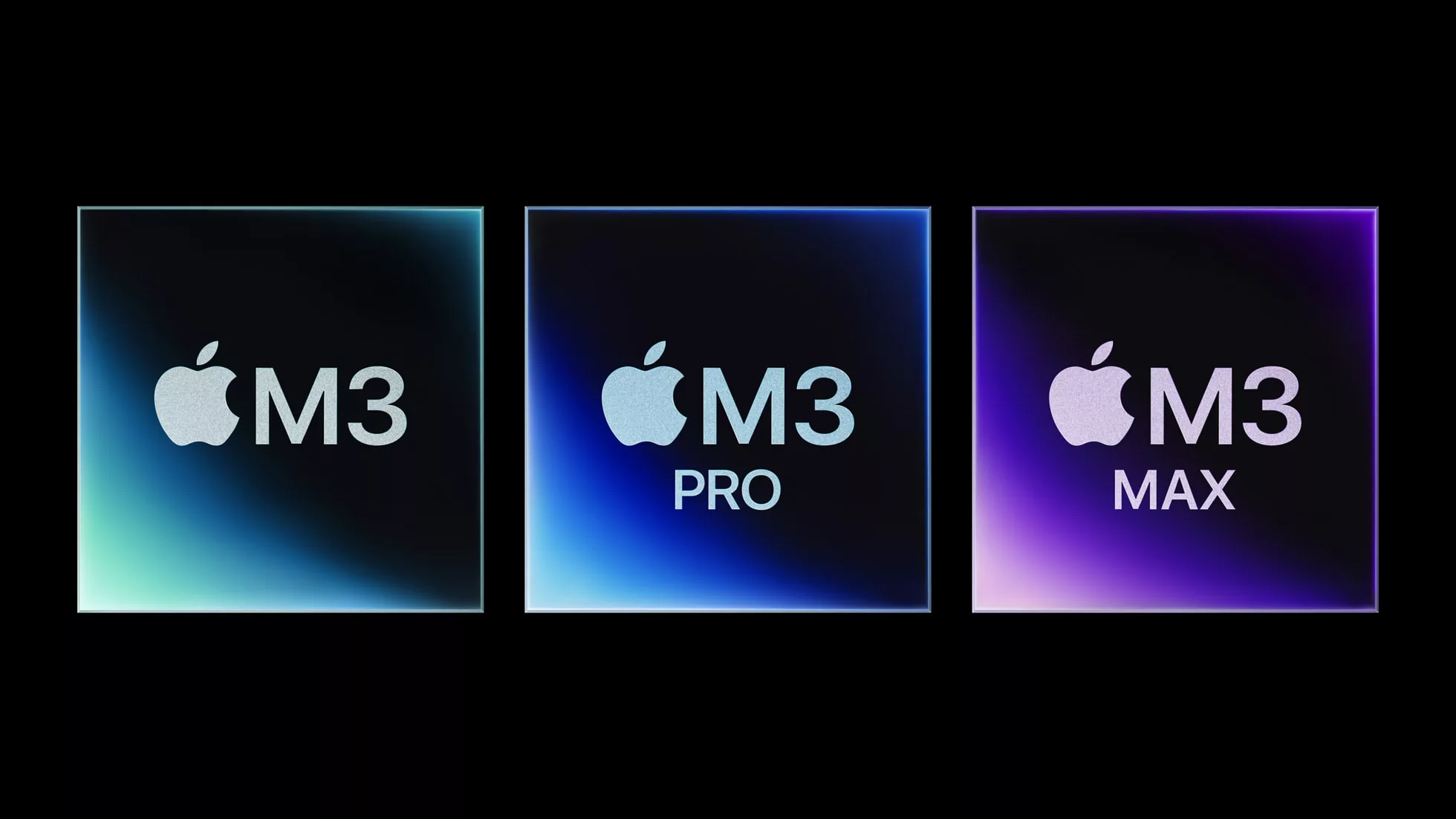
Apple M4 processor iPad announcement
Announced in May 2024, the new iPad Pro is powered by Apple’s latest system on a chip, the M4. The media engine of the M4 supports multiple codecs, including H.264, HEVC, ProRes and now AV1, making it the most advanced media processor ever in an iPad. With this, Apple continues their march toward full AV1 support. Will the Vision Pro 2 be next?
Apple AV1 Dolby Vision Support
Usually around the time of Apple’s World Wide Developer Conference there are some new updates or features around HLS and AVPlayer. During WWDC24, Apple shared a “What’s new in HTTP Live Streaming 2024” doc with several interesting new additions. For AV1 specifically, they called out support for using Dolby Vision Profile 10, which is Dolby’s 10-bit AV1 aware profile. Apple now supports 3 different Dolby Vision profiles: 10, 10.1 and 10.4. Profile 10 is “true” Dolby Vision, 10.1 is their backward compatible version of HDR10 and 10.4 their backward compatible version of Hybrid Log Gamma (HLG). For profiles 10.1 and 10.4, you need to use a SUPPLEMENTAL-CODECS attribute and the correct VIDEO-RANGE. For these, 10.1 should use ‘db1p’ and PQ, and 10.4 should use ‘db4h’ and HLG. The full example codec string they provided is: CODECS=”av01.0.13M.10.0.112″,SUPPLEMENTAL-CODECS=”dav1.10.09/db4h”,VIDEO-RANGE=HLG.
AV1 Software Decoding Support?
When Apple released the iPhone 6s with the A9 chip, it became the first iOS device to support HEVC(H.265) hardware decoding, which included support for FairPlay Streaming with HEVC. When this happened, they also included an HEVC software decoder as part of the next iOS and macOS updates for older devices without hardware support. While the software decoding didn’t support FairPlay Streaming, it was still a big boost for HEVC support and was one of the first things we wondered about after seeing the AV1 decoder announcement.
Unfortunately when asked, Roger Pantos shared that Apple would not be shipping an AV1 video software decoder at this time. He did confirm that iOS 17 does include some AV1 codec support, but only for still images using the Alliance for Open Media’s AVIF format. For now, we can only hope that AV1 video software decoding (like Meta is already using in their iOS apps) will be coming soon.
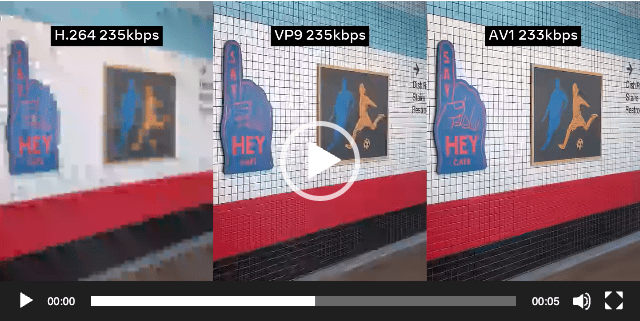
Ready to take advantage of AV1 Encoding?
Bitmovin has been ready for AV1 adoption to spread for some time now, dating back to 2017 when we partnered with Mozilla to enable AV1 playback in the Firefox browser using the Bitmovin Player. We’ve added AV1 codec support to our Per-Title and 3-pass encoding optimizations and just recently made AV1 encoding available in our dashboard UI, so now you can perform your first AV1 encode without any code, API calls, or configuration necessary! Bitmovin’s AV1 encoding has supported DASH streaming together with Widevine content protection for a long time, but we’ve now also added support for fMP4 in HLS playlists together with FairPlay content protection to take advantage of Apple AV1 support for premium content. It’s also available in our free trial, so there’s never been a better time to check it out and begin taking advantage of the bandwidth savings and quality improvements that AV1 can provide.
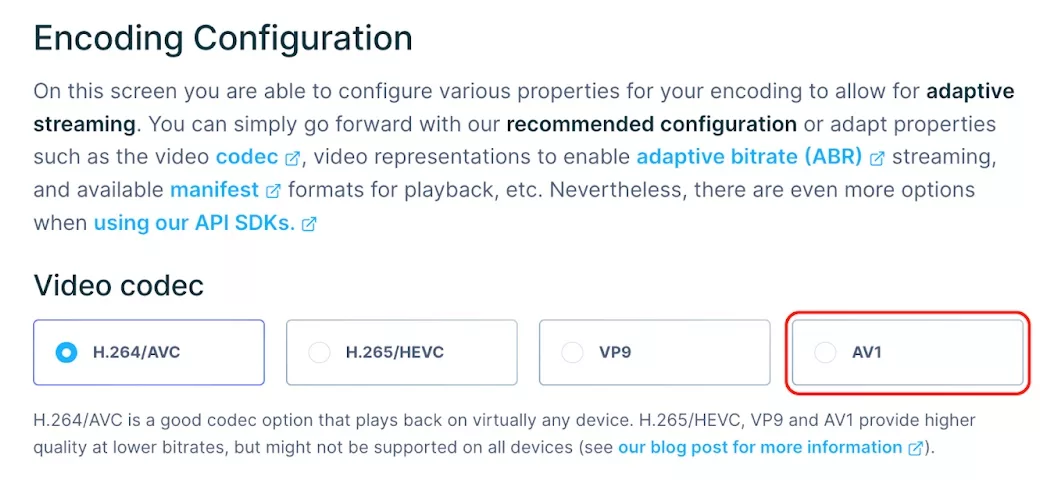
Click here to start your free trial today!
Related links
- Read the latest info about our AV1 playback support and device testing here.
- Learn how using Bitmovin’s Per-Title Encoding together with AV1 can let you stream 4K video at bitrates that had been limited to Standard Definition with older codecs.
- Check out our AV1 hub and download our datasheet to learn all about the codec’s development, performance and how it can lower your CDN costs.



